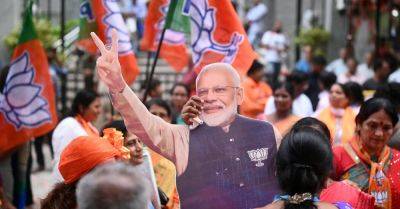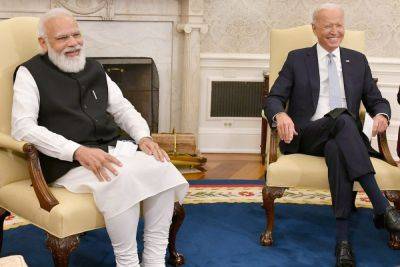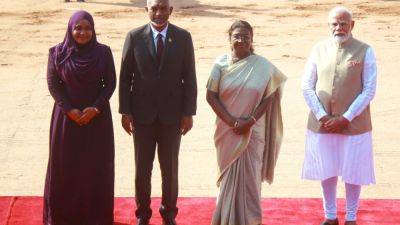Debt forces Maldives to pivot back to India from China
The Maldives, known for breathtaking resorts and serene beaches, is battling an escalating debt crisis and attempting a delicate balancing act between its two largest creditors: India and China. As the island nation braced for an impending debt default, President Mohamed Muizzu’s leadership will be tested by how he steers his country through this turbulent economic and geopolitical landscape.
As of August 2024, the Maldives’ foreign currency reserves totaled $437 million, which could cover only about a month and a half of import bills. The country is projected to arrange $600-$700 million of debt service expenses in 2025 and more than $1 billion in 2026. The island nation owes China about $1.3 billion and India about $130 million.
Against this backdrop, the Maldives president met Indian Prime Minister Narendra Modi in New Delhi on October 7, in a bid to secure much-needed financial assistance, amid fears that the island nation may default on a crucial $25 million bond payment. Reuters reported that India approved a $400 million currency swap agreement, a much needed lifeline for the debt strapped country of half a million people in terms of accessing short-term liquidity.
Maldives debt troubles are related to Sukuk bonds. Sukok is a special type of financial instrument that is often referred to as an Islamic bond, which operates quite differently from conventional bonds in order to comply with Islamic principles, particularly the prohibition of interest.
Unlike traditional bonds, which are debt instruments setting out that investors have lent money in exchange for interest payments, Sukuk represents ownership in a tangible asset or a pool of assets. Investors receive returns not from interest but from the revenue







